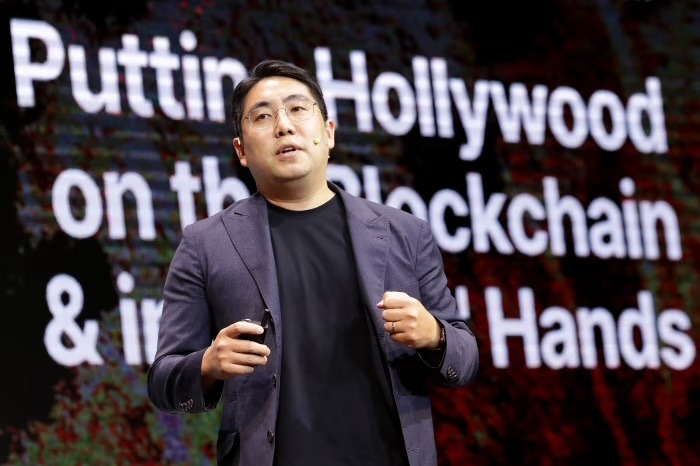AI data center with up to 3 gigawatts of power envisioned for South Korea
Few global facilities possess more than a gigawatt of power, making electricity for artificial-intelligence computing increasingly scarce
By The Wall Street Journal Feb 20, 2025 (Gmt+09:00)
LG Chem to sell water filter business to Glenwood PE for $692 million


KT&G eyes overseas M&A after rejecting activist fund's offer


Mirae Asset to be named Korea Post’s core real estate fund operator


StockX in merger talks with Naver’s online reseller Kream


Meritz backs half of ex-manager’s $210 mn hedge fund



An investor group is planning one of the world’s largest data centers for artificial intelligence in South Korea, a sign of red-hot AI demand across the globe despite concern about the AI boom’s staying power.
If completed as envisioned by its backers, the data center will cost as much as $35 billion and pack up to 3 gigawatts of power. That is nearly three times the planned capacity of a data-center complex in Texas that OpenAI and SoftBank Group are funding as part of their Stargate project in the U.S.
Globally, it is rare for a single site’s available power—which determines how many number-crunching AI chips can be installed—to exceed 1 gigawatt. Power availability has become a constraint as AI models have become more complex and require more chips that gobble up more electricity. According to the research group Epoch AI, developing the largest AI models will likely require more than 5 gigawatts of electricity by 2030.
In the U.S., areas with affordable land and access to sufficient power and data connectivity have become increasingly scarce, posing a challenge to companies eager to expand. As America’s grid runs into challenges, other countries are moving fast to add to their data-center footprints.
The project in South Korea is planned in the country’s southwestern region, far from its capital, Seoul. Construction is set to begin early this year and complete by 2028. The backers—an investor group organized under a company called Stock Farm Road—plan to put in $10 billion to start and invest up to $35 billion over the long term. That company’s founders are Brian Koo, grandson of the founder of the South Korean conglomerate LG, and Amin Badr-El-Din, the founder and chief executive of BADR Investments, based in London and Jordan.
Koo said that while South Korea’s data centers now largely meet domestic needs, the country has the right ingredients for a bigger facility that could serve the world.

Getting the site up and running faces significant challenges. The investors said they have signed an agreement with South Korea’s South Jeolla province, which could assist with access to energy and water, among other resources. A strained supply chain for data-center construction and persistent supply constraints on AI chips from Nvidia threaten to hold back many such projects around the world.
OpenAI and SoftBank are spearheading the $500 billion Stargate project in the U.S., and European and Middle Eastern entities are increasingly pursuing data-center projects. In Asia, the South Korean site would be competing against data-center campuses sprouting up in Malaysia, Thailand, India and other countries where land and labor cost less.
“If they can do it cheaply and timely, there’s definitely an opportunity there” for the South Korean facility, said Jingwen Ong, a research manager who oversees the Asia-Pacific region at the research firm DC Byte.
Write to Asa Fitch at asa.fitch@wsj.com
Write to Timothy W. Martin at Timothy.Martin@wsj.com
-
 Artificial intelligenceOpenAI, SoftBank tap Samsung for Stargate AI initiative
Artificial intelligenceOpenAI, SoftBank tap Samsung for Stargate AI initiativeFeb 04, 2025 (Gmt+09:00)
3 Min read


